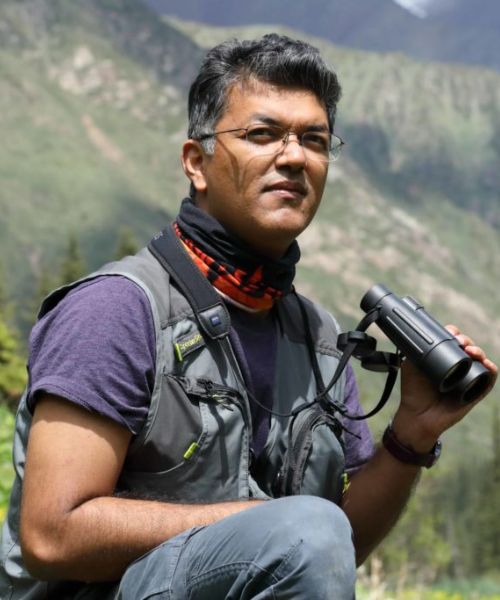Camera trap ethics
‘Towards an ethical code of conduct for the use of camera traps in wildlife research’

Tuesday 16 March 2021
13:00 UK time / 09:00 Eastern time
Chair
Professor Punyasloke Bhadury, Indian Institute of Science Education and Research Kolkata
Speaker
Dr Koustubh Sharma, Snow Leopard Trust
About the workshop
Camera traps are a widely employed tool in wildlife research and monitoring. In addition to images of wild animals, research cameras often record human images, inadvertently capturing behaviours ranging from innocuous actions to potentially serious crimes. If human images are not managed appropriately, it can lead to ethical blunders that may lead to loss of trust and goodwill that is imperative for effective conservation, as well as potential legal issues related to the breach of individual privacy, freedom of movement and personal autonomy under national and local laws.
Addressing some of these dilemmas, we will discuss a series of precautions that researchers can take when planning their study and principles they can follow when handling images of people, while emphasising the importance of respecting the rights and interests of local communities. We build upon our years of hands-on experience and knowledge of practicing field researchers, social scientists, and legal minds, towards an ethical code of conduct for researchers and wildlife managers working with camera traps.
This workshop follows Koustubh and his team’s recently published article in Ecological Solutions and Evidence which was also selected as the Editor’s Choice for Issue 1:2.
About the speaker
Koustubh Sharma has been involved in active research and conservation for 18 years. He is working with the Snow Leopard Trust, Seattle, USA as a Senior Regional Ecologist since 2007, and since 2014, has taken additional charge as the International Coordinator of the Global Snow Leopard and Ecosystems Protection Program (GSLEP) whose secretariat is based in Bishkek. At the GSLEP Program, Koustubh leads a small team with support from international organizations to coordinate this unique alliance that brings together governments of the 12 snow leopard range countries, Non-Government Organizations and Conservationists.
Watch Koustubh’s talk here
Sponsored by Wildlife Acoustics

Creating the world’s leading bioacoustics research tools. As well as creating cutting-edge recorders and software for monitoring and analysing environmental sounds, Wildlife Acoustics offer a range of free online training courses, video tutorials and much more.
Visit www.wildlifeacoustics.com/resources to find out more.